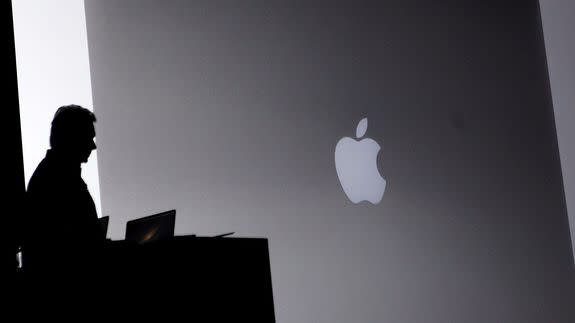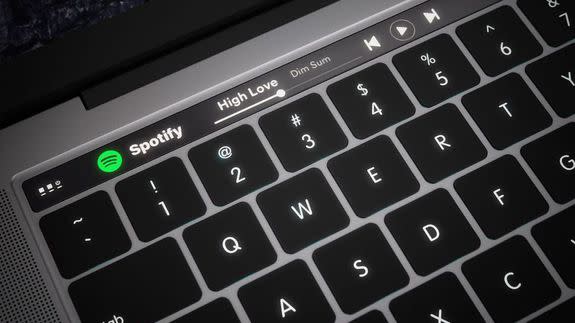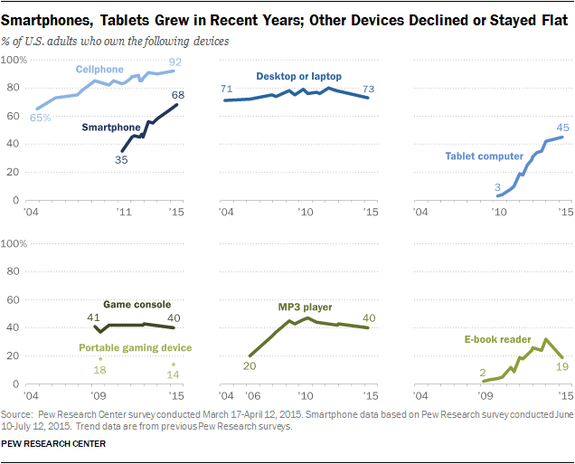Why Apple's big MacBook reveal will feel so damn boring

Apple updates its iPhones and iPads like clockwork, but it's been a little while since we got a fresh crop of MacBooks — you know, those clamshell things with physical keyboards that you can plug a mouse into for hyper-efficient Microsoft Word-ing.
The tech corp will hold a media event Thursday, where it's expected to unveil a new line of laptops. We'll probably see a 13-inch Macbook Air and two different MacBook Pros (13- and 15-inch models).
SEE ALSO: 90% of Apple chargers sold on Amazon could be counterfeit, Apple says in lawsuit
The last time these computers saw a substantial update was spring 2015. That isn't so long ago — especially considering a good laptop should last years — but Apple has nonetheless fallen behind the competition when it comes to hardware. If you're a consumer who simply must have the latest and greatest, you might lean toward something a bit fresher (like the HP Spectre, a Mashable Choice laptop that's thin and powerful) rather than a computer that came out early last year.
Apple can't let that stand.
What we'll probably see at Thursday's event
The buzziest change is a new "Magic Toolbar" that will look fancy, piss some people off and supposedly make these computers a bit easier to use.
Rumor has it the new MacBook Pros will have the feature, which replaces the top row of mechanical keys with an OLED touchpad that will display different interactive features depending on what apps you're using.

Image: Martin Hajek
Instead of the function keys, this touchpad could display things like the Play or Skip buttons for Spotify, which is kind of cool, if not life-changing. At the very least, the Magic Toolbar should spare you from memorizing some keyboard shortcuts, though people will complain about losing physical buttons that they've become accustomed to.
It's also been suggested that the MacBook Pros will come equipped with four USB-C ports, bringing the devices up to speed with that HP Spectre we mentioned, and it will supposedly have a Touch ID sensor that will allow users to unlock the devices with their fingerprint. That's theoretically quicker and more secure than a standard password, so we'd welcome the change.
Rumors also say Apple will remove the SD card slot from the MacBook Pros — which will surely infuriate photographers and other people who use that slot for work — and the company will probably cut the MagSafe charger you're familiar with in favor of USB-C.
The Pros will no doubt get a facelift and thinner design, as well, with "butterfly" keys that are more responsive.
Beyond the Pro updates, reports say we'll get a new 13-inch MacBook Air, also with modern USB-C ports. We're faint with excitement.
What we probably won't see
KGI Securites, a well-respected source for Apple analysis, says rumored updates to the iMac desktop computer and a 5K external display won't be coming until 2017.
Why did we have to wait so long to get new MacBooks?
While it's important for Apple's iconic laptops to stay competitive, the reality is that they're just not as important as other products in the company's portfolio.
It's time for some numbers. (Stay with us!) Let's take a look at Apple's most recent earnings report, which is thematically similar to the others from the past year:

Image: Apple
Okay, you didn't actually have to look at that: The bottom line is that Apple sells many, many fewer Mac computers than it does iPads and iPhones. And while those computers do generate more revenue than the iPad, it utterly pales in comparison to the amount of money dragged in by the iPhone.
It's a comically unfair comparison. In the third quarter of this year, the iPhone brought in $24 billion in revenue for Apple, while Macs brought in $5 billion. (Let's take a break to indulge in a bit of internet parlance — LOL, this company makes a lot of money.)

Image: Mashable via Youtube
Here's the thing: Apple actually didn't sell many more computers in the third quarter of 2015, when it had just launched new MacBooks. In the modern era, full-size computers aren't interesting, but smartphones are.
Desktop and laptop ownership across the United States has remained stagnant, and PC sales are in decline. Meanwhile, smartphone usage has soared according to surveys from the Pew Research Center:
Smartphones are even more important when you consider certain demographics. Also from Pew, we see that:
68 percent of black Americans owned smartphones in 2015, but only 45 percent owned traditional computers.
86 percent of Americans between the ages of 18 and 29 owned smartphones while 78 percent owned computers.
52 percent of people who earn less than $30,000 owned smartphones, which is slightly more than the 50 percent who said they owned a computer.
So, we know that iPhones generate a whole lot more money for Apple than Macs do, and it's also clear that the number of potential smartphone customers is growing at an exponential rate while computer ownership is stagnating. It also appears that Apple can market relatively inexpensive iPhones to a different sort of customer than it can sell MacBooks to.
All things considered, we shouldn't really ask why Apple took so long to update the MacBook line: We should wonder why Apple bothers to update is as frequently as it does.
It's because they have to in order to keep pace with competitors and to appease Apple fanatics who have felt a "sheer panic [over] the lack of Mac updates." Updating MacBooks at this point is inevitable — and inevitability is boring.

 Yahoo News
Yahoo News 
